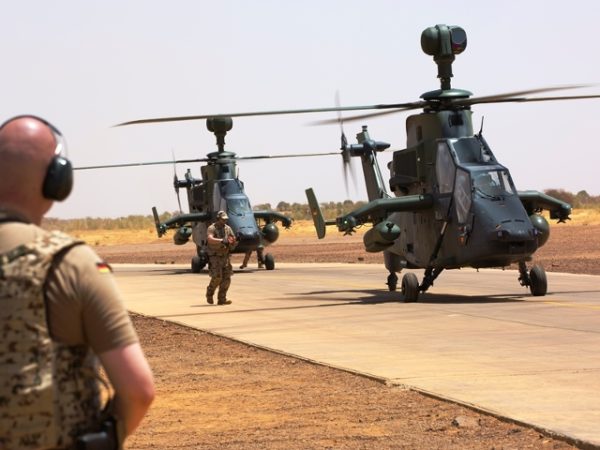The Dutch and Germans on a “tourist” mission in Mali?

(B2) The Germans and Dutch are quite involved in Mali within the United Nations force (MINUSMA) (1). The presence of Europeans in MINUSMA has a reassuring side but in terms of real stabilization and the fight against terrorism, the commitment seems rather limited if we are to believe some testimonies.
A force of presence rather than a stabilizing force
This commitment looks more like a force of presence than a real stabilizing action. The European soldiers rarely leave the camp to patrol... Too dangerous. The essence of the action seems to be to brick the impeccable premises to receive their visitors, and to take selfies in a warrior posture, which do not frighten anyone, except the recipients of these selfies and are, without any risk, since 'they are caught... inside the base, ironically a specialist in military matters.
overprotected
The feat of arms of these blue helmets is to have, with the engineer bulldozers, work to reinforce the protection of the camp to avoid any incursion of the rebels or any action by improvised explosive device (IED). A very effective super-protection ... but which is expensive for their neighbors. The Bangali (for example) or Malian troops, much less protected, are regularly attacked by the rebels, who thus find easier prey.
Intelligence without intelligence vectors
On the Dutch side, the presence does not seem to have been much more effective. Officially, the Batavians came to do intelligence work for the United Nations. The only problem is that they have very few French speakers in their ranks. So to do human intelligence, in other words, it's rather difficult... On the electronic side, we can't say that the city of Gao is a high place of global connection. So to keep busy, they map the places...
Draw already known maps
This is – as the Dutch Ministry of Defense specifies “ gather information for Dutch ground support units. Objective: in particular to draw up a map of places, strategic places (wells, etc.). That is to say, in fact, to redo the work, already accomplished by the "guys" of the Coloniale who have surveyed these different places many times over the past few decades. But, apparently, the Dutch did not seem aware of the existence of these cards.
Combat helicopters... for glory
As for the four Apache helicopters, which have now returned to the country, they were supposed to provide intelligence and deterrence, in particular by ensuring a combative posture. According to our information, they came out once in a year on a real action! A little expensive for a poor result.
(Nicolas Gros-Verheyde)
The German-Dutch commitment
Berlin had promised Paris after the November 2015 attacks. They kept their word, gradually strengthening their commitment. The authorization, renewed in January 2017, from the Bundestag makes it possible to engage 1000 soldiers, as well as NH-90 type transport helicopters – in particular for medical evacuations – and Tiger attack helicopters to replace the Dutch. The German contingent also includes a reinforced mixed reconnaissance company, equipped with drones and reconnaissance vehicles Fennec.
For the Netherlands, it is more of an international commitment, part of the campaign to secure a place on the Security Council, and a personal commitment of the Minister of Foreign Affairs, Bert Koenders, who was the head of MINUSMA. The Dutch commitment also dropped significantly in 2017. The workforce was reduced to 300 soldiers and 25 police officers. The 4 Apache attack helicopters (responsible for reconnaissance) returned to the country in 2016, as well as the three Chinook transport helicopters, replaced by German helicopters.
